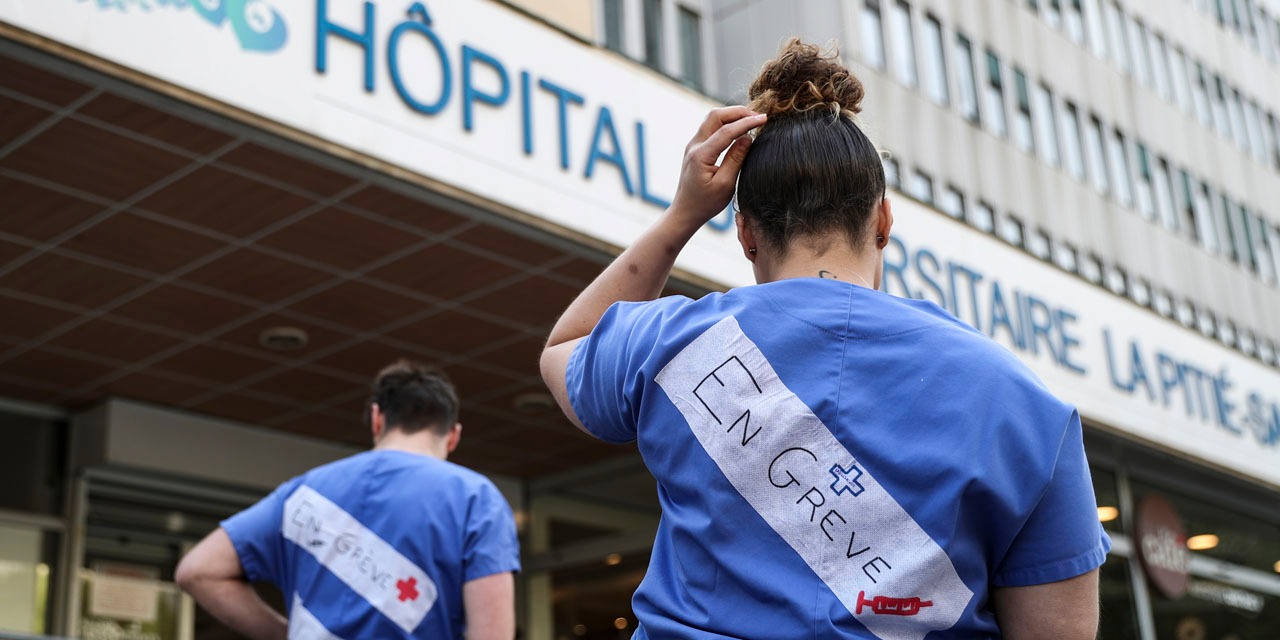EDITORIAL
>>> Strike in the hospital, soon strike at the SNCF and the RATP, political and social crisis on Islam and on immigration ... The period is agitated for the government and for Emmanuel Macron. According to our columnist Nicolas Beytout, the President of the Republic must leave his wait-and-see attitude on these three fronts and must finally decide.
France will experience a new social alert this week. And this time, it is the turn of hospitals, with a strike that looks very hard. It will be Thursday, and many health professions as well as medical students have decided to join this movement. Agnès Buzyn, the Minister of Health, has tried to urgently present a plan - a new plan - for the hospital, to no avail. It must be said that each time, the government promises improvements for tomorrow. And nothing or not much concrete, in the immediate future. In any case, it will be necessary to observe very closely this strike, because it will give the "the" of the mobilization before December.
The month of December promises to be tense, with strikes by SNCF and RATP against the pension reform. A strike renewable from December 5 to the RATP, and - this is the novelty of recent days - SNCF strike also renewable for the CGT. It's escalation, and it's all the more worrying because the government, for some time, has been doing everything to round off the angles. I am thinking in particular of the famous "grandfather clause", which would make it possible to apply the reform only to those who will enter the SNCF in the future. Emmanuel Macron and Edouard Philippe both said that it should be studied. Patatras, the High Commissioner for Reform, Jean-Paul Delevoye, is against, and he says it. This is a first big quack in the government. It seems in any case that it was dryly cropped.
"We have the feeling that the presidential doctrine is not stable"
The problem is that there was at about the same time another quack, this time from Nicole Belloubet. Not on the social, but on immigration, on the introduction of economic immigration quotas. The Prime Minister has just announced, and re-patatras, his Minister of Justice explains that it does not believe. It must be said that Emmanuel Macron has changed a lot on these subjects, and that we still do not know for sure what is his line, which creates a lot of hazards. It is a little the same thing on the issues of secularism: we have the feeling that the presidential doctrine is not stable. The President recognizes, for example, that a political Islam is trying to settle in France, but at the same time refuses to pronounce on the wearing of the veil on public roads. He said, "It's not my business."
You see that on these three dangerous fronts, Emmanuel Macron has a problem of decision: on the hospital, it takes concrete, massive right now, not for tomorrow; on pensions, we must come out of this period where everything is in everything and vice versa, where the multiplication of assumptions, interminable consultation, all this creates a very counterproductive fog. Finally on the sovereign, on issues of Islam, secularism and more generally immigration, a clear and stable doctrine, either, would not be useless. France enters a turbulent period. And we want to say to the President: decide, decide.

